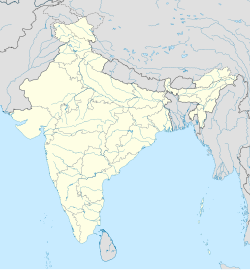Akauna, Nalanda
This article needs additional citations for verification. (January 2017) |
Akauna | |
|---|---|
Village | |
| Coordinates: 25°7′13.739″N 85°24′16.697″E / 25.12048306°N 85.40463806°E | |
| Country | India |
| State | Bihar |
| district | Nalanda |
| Block | Ben |
| Mukhiya | Abhinay Kumar Singh |
| Population (2011) | |
• Total | 3,393 |
Akauna is a large village located in Ben block, Nalanda district, Bihar, India. Map link- https://www.google.com/maps?q=Akauna,+Bihar&ftid=0x39f2edd7131d9847:0xf9fbfe5653c65a69&hl=en&gl=gb

Population
[edit]Akauna has a total of 568 houses in it. The Akauna village has population of 3393 of which 1792 are males and 1601 are females as per the Population Census of 2011.[1]
The population of children ages 0 to 6 is 553 which makes up 16.29% of the total population of the village. The average sex ratio is 893 which is lower than the Bihar state average of 918. The child sex ratio as per the census is 1119, higher than the Bihar average of 935.[1]
Panchayat Bhawan
[edit]The newly constructed the Panchayat building which includes the office of Head of panchayat, Dakshin Bihar Gramin Bank and post office. The flag hosts and speech on republic and independence day every year. After the speech which is mainly on development of panchayat, the national sweet "Jalebi" distributed among the villagers. <credited by Vivek Kumar/>
Education
[edit]Akauna village has a higher literacy rate compared to Bihar. In 2011, the literacy rate of Akauna village was 68.45% compared to 61.80% for Bihar. Male literacy was at 77.40% while female literacy was 57.98%. Akauna Highschool and Utkramit Middle School are the main schools. There are no other schools or coaching facilities. <credited by vivek kumar />
Income sources
[edit]Out of the total population of Akauna, 1221 people were engaged in work activities. Of these workers, 78.38% described their work as lasting more than six months, while 21.62% described their work as lasting less than six months. Of the workers engaging in long-lasting work, 397 were agricultural laborers and 476 were owner or co-owner of land and farmed it.[1]

